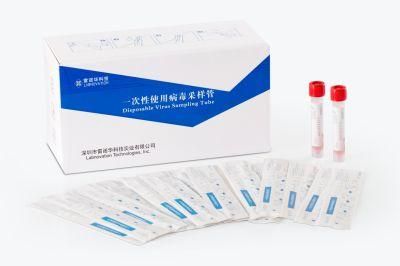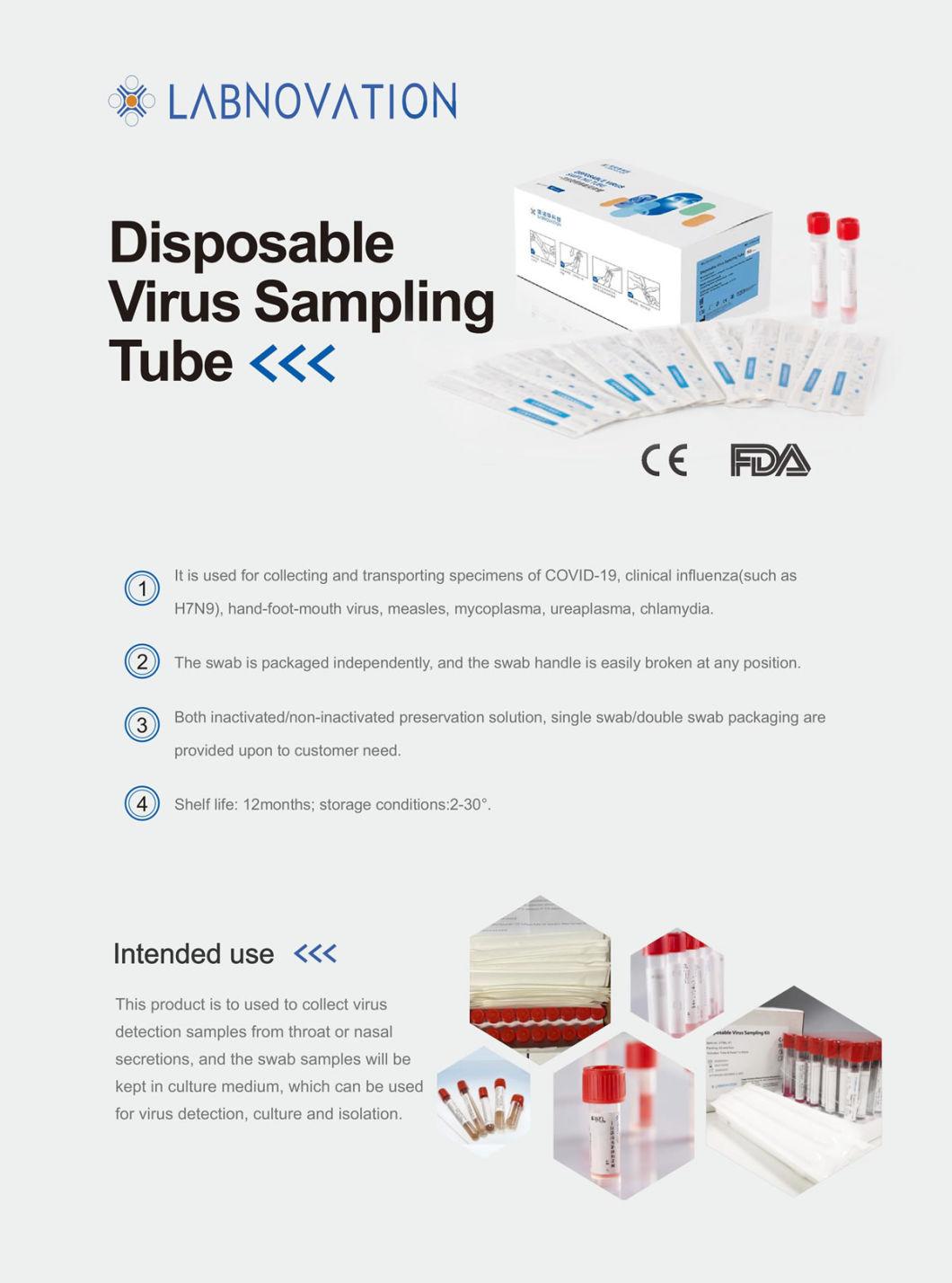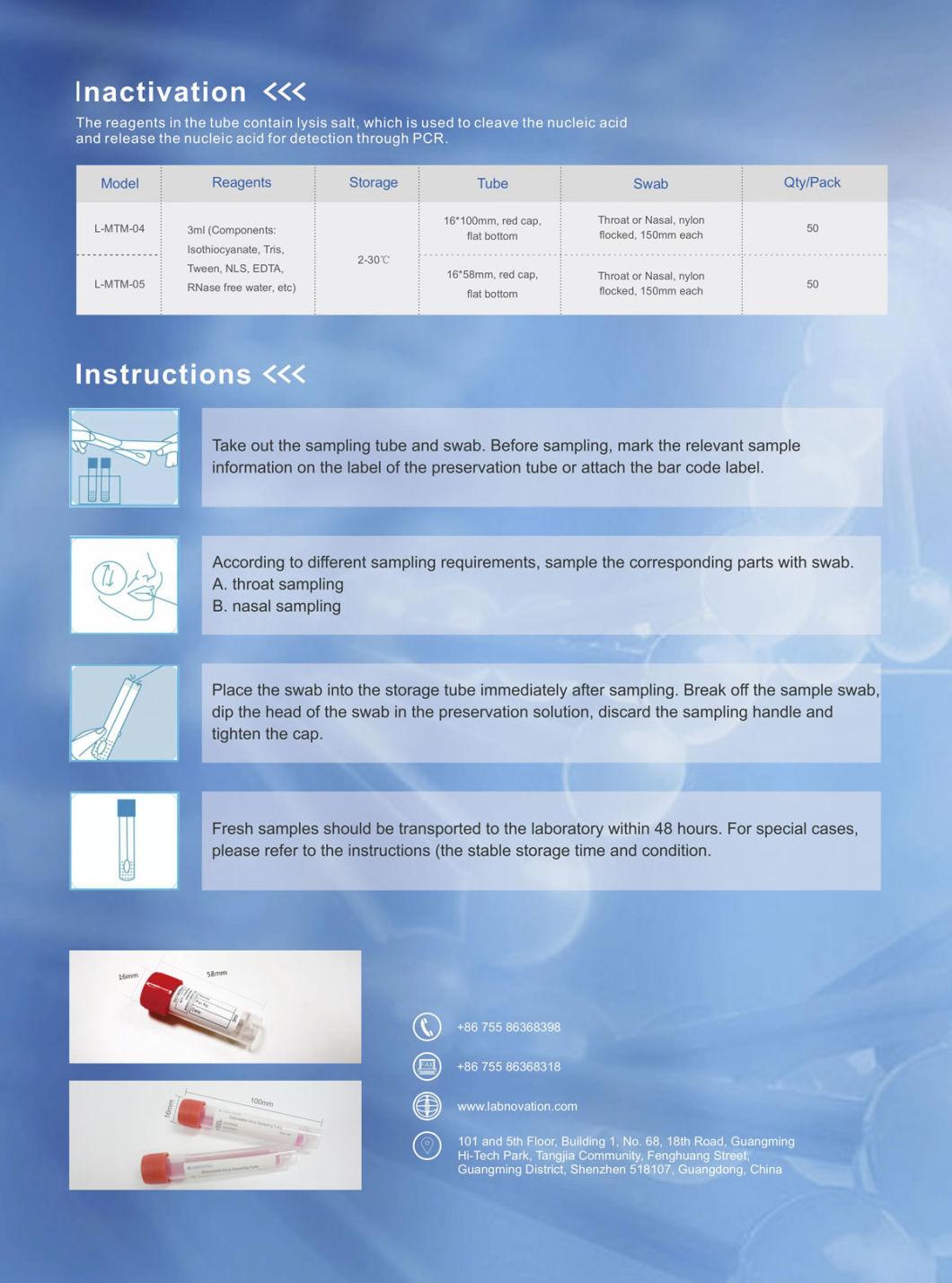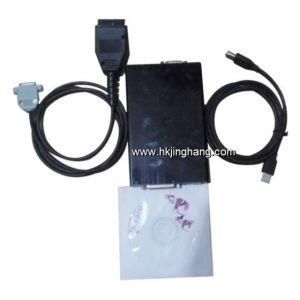Disposable Vacuum Blood Specimen Collection Tube Virus Sampling Tube
Shenzhen Source Pack Co., Ltd / 2022-06-23

- Type:Vacuum Blood Tube & Blood Bag
- Material:Plastic
- Ethylene Oxide Sterilization:Ethylene Oxide Sterilization
- Quality Guarantee Period:Two Years
- Group:Adult
- Logo Printing:With Logo Printing
=== Base Info ===
- Model NO.:VTM
- Volume:3ml
- Storage:2-30°c
- Package:50PCS,Pack
- Transport Package:Carton
- Specification:16*58mm, 16*100mm
- Trademark:LABNOVATION
- Origin:China
- Production Capacity:50000,Day
=== Description ===
Basic Info.
Model NO. VTM Volume 3ml Storage 2-30°c Package 50PCS/Pack Transport Package Carton Specification 16*58mm, 16*100mm Trademark LABNOVATION Origin China Production Capacity 50000/DayProduct Description
Disposable Vacuum Blood Specimen Collection Tube Virus Sampling Tube Virus Sampling TubeThe Disposable Virus Sampling Tube is designed to collect, preserve, and transport swab (nasopharyngeal, or throat) specimens and to preserve and transport nasal aspirate/wash specimens containing viruses from patients with signs and symptoms of respiratory infection prior to analysis.
Specimen Collection and Handling
Samples should be transported at 2-8°C.
Samples can be stored for up to 48 hours at 2-8°C before processing for analysis.
The nylon flocked swab should not be bent prior to specimen collection.
Proper specimen collection, storage, and transport are critical to the performance of this test.
Sample Collection Procedure
Proper specimen collection from the patient is extremely critical for successful isolation and identification of infectious organisms. Highest
viral titers are present during the acute illness.
1. Collect the specimen with the swab. Take care not to touch the tip of the swab and not to lay it down.
2. Aseptically remove the cap from the tube.
3. Insert the swab into the tube with the transport medium.
4. Break the swab shaft at the pre-scored line by bending it against the tube wall. If needed, gently rotate the Swab shaft to complete the
breakage.
5. Replace the cap onto the tube and close tightly.
6. Mark or write on the label of the tube with appropriate patient information.
7. Send to the laboratory or testing area for immediate analysis.


New product
Hot product
- Gm Candi Interface
2022-06-23
- Scan Dash V2.0 for BMW
2022-06-23
- K+Can Commander 2.0
2022-06-23
- Mut-3 Professional Diagnostic Tool Mut3
2022-06-23
- CKM-100 Key Programmer for Benz/BMW
2022-06-23
- Fuel Injector Tester & Cleaner (MST-N6A)
2022-06-23
- Mst 9000+ Plus ECU Simulator
2022-06-23
- OBD Ii Code Reader Mst-300, OBD2 Code Scanner
2022-06-23
- Digital Battery Analyzer (SC-100)
2022-06-23
- VAS5052A PC VERSION with VAS5054A Wireless Bluetooth Communicate
2022-06-23





